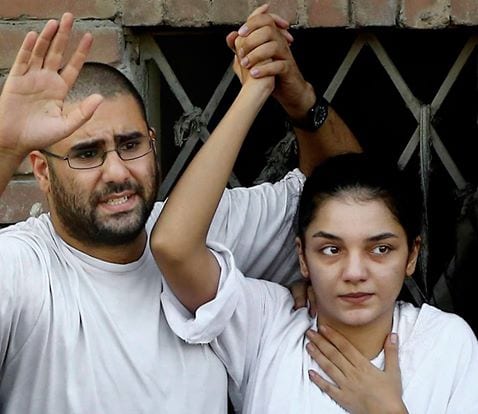Money laundering law amendments threaten the right to private property and install the police state
The Egyptian parliament initially approved amendments proposed by the government on the money laundering law. The modifications included considering the money laundering an independent crime rather than being related to original criminal activities such as drugs, arms and antiquities trafficking, terrorism or bribes.
Instead of proving the illegal source of the money through judicial decisions, the amendments trusted the security agencies so that the court could confiscate the stocks or the assets if the security investigations proved that they originated from acts that could harm the country’s security or the economic interests of the society, spoil the political life or threaten the national unity. Several MPs, including Samira Al-Gazzar, objected to the amendments requiring a two-thirds majority. She saw the governmental bill infringing the constitution that guarantees the right to private property and bans confiscations without a judicial ruling.
The amendment’s opponents added that the law released the hands of the authorities to seize on the people’s money and properties according to the police investigations without judicial oversight. This attitude appeared in another amendment that gives the law enforcement agencies the right to conduct “collateral financial probes” to reveal the source of the stocks and assets if they are suspected of criminal activities, so they can develop evidence for the courts to confiscate the money.
The government’s argument
In response, the Minister of Justice explained that the amendments aim to fill a loophole as the defendants are sometimes acquitted because of defected procedures or the expiry of the criminal appeal after several years. In such cases, the minister said, the defendants were taking the resulting money even though it was acquired in illegal ways.
The governmental attitude to release the authorities’ hands over the private money was confirmed by another amendment that authorized the president to form the Board of Trustees of the CBE’s Unit of Combating Money Laundering. The board is to be headed by a jurist from the cassation or appellate courts with at least 15-year experience, while the membership is to include the Attorney General or a representative of him, the director of the Financial Regulatory Authority, the two deputy governors of the Central Bank and a representative of the Federation of the Egyptian Banks as well as several legal and financial experts. The bill obliged the financial institutions and the business people to comply with the regulations provided by the unit and punished the violators with either one-year imprisonment or a fine of 100 to 300 thousand pounds.
The attitude towards confiscation
The bill resumes the state attitude in Egypt to seize on private stocks and assets due to political causes since 2013. Everything started in September 2013, when the Urgent Matter Court decided the Muslim Brotherhood as a terrorist group. According to the verdict, the Egyptian government formed a committee to survey and control the group’s money. Over the following two years, the committee, which was merely an executive one without judicial authority, seized the stocks and assets of 1375 persons with bank balances of about EGP 155 million, 1116 associations with bank balances of EGP 20 million, 112 schools with proportions of EGP 283 million, 43 hospitals with proportions of EGP 111 million, 65 companies with bank balances of EGP 17 million, and 21 exchange companies with ratios of EGP 81 million. In addition, the committee seized 460 cars and 318 agricultural fans.
In 2015, Abdel Fattah al-Sisi ratified the law 20 of 2015 regarding the terrorist entities, which provided an ill-defined legal determination of the terrorist entities or persons and authorized the public prosecution to prepare terrorism lists and the criminal courts to issue them without rulings proving the engagement of the listed entities or persons in terrorist acts. In 2017, using this ill-forged law, the committee appealed to the public prosecution to list 1534 persons besides the Muslim Brotherhood on the terrorism lists. And in 2018, law 22 was issued and authorized the urgent matters court alone to order the confiscation, rather than the reservation merely, of the money of the Muslim Brotherhood members. The eminent Egyptian lawyer Khaled Ali acquired a ruling from the appellate court in Cairo to appeal against the legislation before the constitutional court.
According to those legislations, the committee added the stocks and assets of 1589 persons, 118 companies, 1133 associations, 104 schools, 69 hospitals and 33 websites and TV stations to the money seized by the committee. Ahmed Moussa estimated the confiscations with over EGP 300 billion, the state-sponsored TV host. In March 2020, amended the law to allow the confiscation of the money of listed persons or entities even if there is no evidence that the funds originated from or were used for terrorist acts.
The UN human rights experts criticized the Egyptian authority’s abuse of the laws to list peaceful activists on terrorism lists and subsequently seize their properties without legal causes. The violations of the right to private property amounted to persecution and detention of business people to force them to abandon their stocks, like what happened with Safwan Thabet, the owner of the big food industry, Juhayna, who was detained along with his son, Seif, after he refused to waive his stocks to the military-economic organs.





Recent Comments